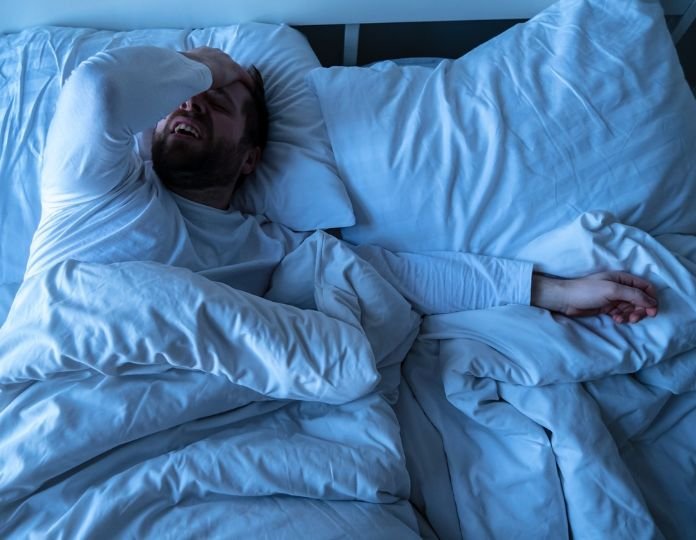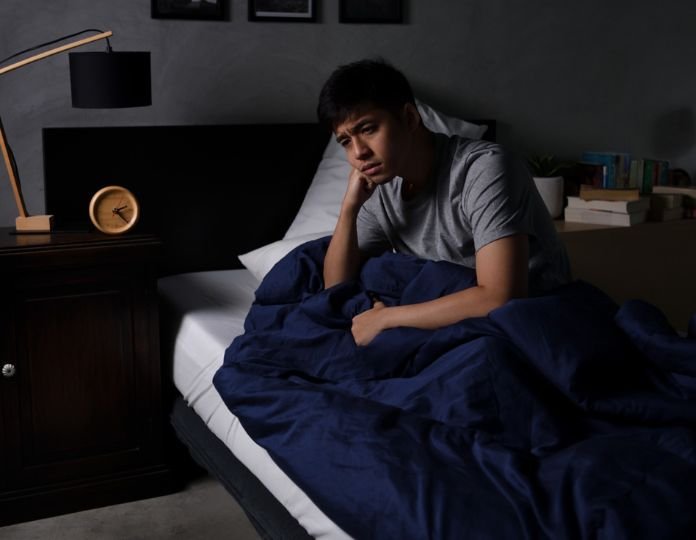Sleep Problems have the potential to become the next Mental Pandemic considering their strikingly high global prevalence in the past decade. Scientific evidence suggests that the prevalence of ‘sleeplessness’ is as high as 50-60% amongst slightly older adults, females and those with already existing mental or medical health conditions. Not only globally, but sleep has also started to become a pressing issue in the Indian scenario in the last couple of years. Individuals across different demographics, professions, lifestyles and physical-emotional states report Sleep-related problems. A recent NCBI study stated that approximately 33% of adults in India are diagnosed with Sleep Problems every year.
Read More: Understanding and Managing the Impact of Sleep Debt on Health
Still, another study on specifically corporate Indian employees posited the prevalence to be approximately 14%, while 96.4% of them were undiagnosed and untreated. The Sleep Pandemic in fact may even take over the ever-existing mental epidemic of ‘Depression’. Depression has been one of the highest globally prevalent mental health issues and considering Sleep issues have strong links with Depression, Sleep may just take over Depression in no time. Evidence also suggests about a third quarter of individuals with Depression have Sleep-related concerns. So much so that researchers ascertain, the diagnosis of Sleep to be confirmed with ‘caution’ if Sleep symptoms are absent.
Sleep issues, thus, require considerable scientific attention before they become the next Mental Pandemic. Despite the increasing prevalence of sleep issues, there still lies a large gap in understanding the ‘quantitative and qualitative’ impact of Sleep Problems amongst the working-age adult population. Also, ‘how to solve’ Sleep-related concerns even after evaluating their mental-physical impact on the individual is a further unresolved area of concern that needs considerable national and international attention from domain experts.
It’s high time that Sleep problems are prioritized by health industry experts and recognised as a crucial problem statement. This is essential because problems with sleep have the potential to not only impact an individual’s sleep routine, but also their overall Lifestyle, Physical Health, Daily Functioning, Workplace Productivity, decision-making, and Social-Motor-Cognitive-Emotional states. Moreover, according to scientific evidence, an adequate ‘duration’ and ‘quality’ of sleep is primary for the healthy and long-functioning life of an individual. According to further evidence, adequate sleep has become a prerequisite for maintaining effective Cognitive functioning, reducing distress and lowering the risk for critical health conditions like Coronary Heart Disease and Obesity.

Considering the evident magnanimity of the impact ‘Sleep’ issues have on both the individual and community at a multifold level there is an urgent need to create ‘scalable mental health solutions and interventions to fast-track this process and reduce the growing incidence and prevalence of Sleep-related issues. One effective way of scaling sleep solutions is by ‘digitizing’ them.‘Digital Mental Health’ has definitely taken over conventional mental health solutions, especially post-pandemic.
Read More: Unlocking Better Sleep: Understanding and Addressing Sleep Disorders
‘Mental health’ has been pushed to ‘top of the mind’ amongst corporate organizations, institutes and the working population at large. All this while during a pandemic, Conventional treatments have failed to extend adequate care to the working cohorts. Literature also suggests that Digital Mental Health Apps are being looked upon as the ‘future’ of comprehensive and reliable mental health solutions for solving one of the biggest challenges of making ‘mental health support accessible’ to the community at large.
These platforms are being considered as means to make effective solutions scalable at the community level globally. Also, given that the link between ‘sleep-related concerns’ and the ‘overall well-being’ of an individual is considerably strong, there is immense potential for Digital Mental Health Apps to assess, track and create interventions for Sleep-related issues in order to improve the overall functioning of the individuals. This was also backed by studies conducted at premier institutes like Harvard.
Read More: The 5 Stages of Sleep Cycle
Existing mental health apps such as Heyy, Headspace, Wysa, Amaha and Calm to name a few, are making their own individual attempts to solve the issue of Sleep via Scientifically backed Assessments, Sleep-curated Playlists and Sleep-based Stories. Different platforms have adopted different types of standardized sleep-related Assessments, varied themes and formats of Sleep Stories and peculiar categorizations of sleep-based Music Playlists.
While some apps focus on “calming” & “soothing” playlists, others follow “meditation”, “relaxation”, “nature” and “instrumental” sounds in order to induce sleep. Further, in relation to Sleep stories, some apps have adopted movie-theme-based stories while others incorporated bedtime tales and meditation-led sleep narratives. Apart from these commonly available solutions, minuscule evidence also suggests ‘Sleep Journal’ ‘-like strategies to aid the user in sleep-based problems.
These journal entries help users to keep a check on their sleep routines and improve their sleep patterns. But the question that arises is “Is this enough to solve sleep as a use case at the global level?” The current answer may be No! More needs to be done to build comprehensive and holistic solutions for the problem.

Recent advances in technology, in fact, point towards the need to explore the possibilities of incorporating digital sleep ‘trackers’, ‘timers’ and other ‘quality indicators’ within Digital Mental Health apps solving for sleep and providing holistic solutions at the community level. Incorporations of different features such as detecting ‘sleep onset-wakeup time’, ‘sleep quality’, ‘duration’, ‘chronotypes’ and ‘activity rhythms’ via digitally-aided mental health platforms, could actually be a step forward in supplementing and creating comprehensive solutions for the population at large.
Digital smartphone-based means are viewed as the most ‘non-invasive’ ways of tracking and providing solutions to individuals experiencing sleep-related problems as opposed to conventional PSG or actigraphy technologies. So the impact can be even more effective. Technology-led solutions can be promising and cost-effective inwards to solving sleep-related problems across demographics globally. If utilized optimally, digital solutions could actually aid the process of ‘Diagnosis’, ‘Tracking’ and ‘Treatment’ of sleep-related issues end-to-end.
Read More: Weather Wonders: How the Elements Shape Your Mood and Sleep
Increasing possibilities of scaling sleep solutions digitally have also caught attention from ‘Investors’ in the mental health sector in the last 3-5 years. Wherein, ‘employers’ too have shown keen interest in vesting in sleep-based solutions for their employees considering changing post-pandemic working patterns and lifestyles. Remote and hybrid work patterns have made it hard for employees to switch off from work and as a result, experience disturbed patterns of sleep.
According to a recent article, more and more organizations post-pandemic are trying to offer employees sleep-based solutions by celebrating sleep months or providing access to ‘digital care’ platforms that solve for better sleep. However, this may not be sufficient to rule out the ‘root’ of the problem. Comprehensive solutions are the need of the hour. Even though ‘Digital Solutions for Sleep’ is no longer a dream there is immense scope to evolve existing digital platforms to build comprehensive sleep-based solutions and solve a globally relevant problem.













Leave feedback about this